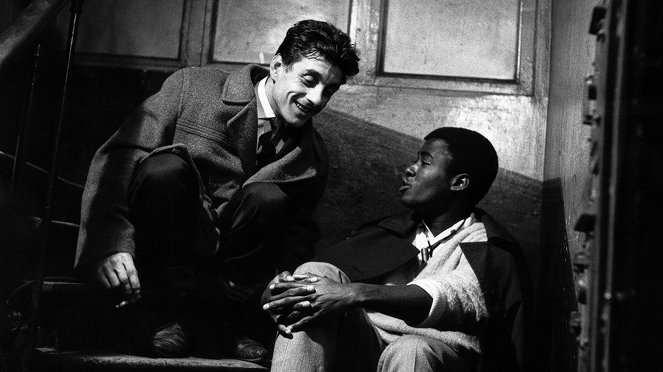Cinematography:
Raoul CoutardVOD (1)
Plots(1)
In the summer of 1960 anthropologist filmmaker Jean Rouch and sociologist Edgar Morin set out to chronicle the everyday lives of Parisians using a mixture of intimate interviews, debates and observations. Artists, factory workers, office employees, students and others open up to the camera to share their experiences, fears and aspirations. The result became one of the decade's most influential films, and redefined the documentary form. (British Film Institute (BFI))
(more)Reviews (2)
This film should be mandatory for everyone who believes that a documentary is, by its very nature, what is meant to observe and capture reality "objectively" and in "unscripted" situations. Foolishness for many reasons, of which the Rouch/Morin duo choose only a few: first of all, in the context of the social sciences (among which the sociological documentary belongs), the recurrent illusory separation of subject and object, which inevitably imprints the observer's point of view on the observed reality. This is beautifully demonstrated by the authors' repeated entries into the actual film and their interactions with extras. Furthermore, the naive separation between scripted fictional scenes ("feature film") and authentic situations ("documentary") - the camera is always an invasive element, and its mere presence transforms the entire situation and behavior of the actors. This is beautifully shown in the brilliant final part, where the film's characters watch themselves during the screening, and in the subsequent discussion, there are mutually contradictory interpretations regarding the nature of spontaneity in their own and others' speeches. In short, it is a mockery from over half a century ago of those who expect a documentary to capture the emanation of pure Truth.
()
Cinema vérité definitely won't be my cup of tea because similar films simply don't resonate with me and don't appeal to me. I do enjoy documentaries, but honestly, I'm more interested in other documentaries than these ones specifically. Paris isn't presented in an interesting way here, neither is its population, and I think that's what it was meant to be about. Or maybe it was really just about involving a person in the film?
()

